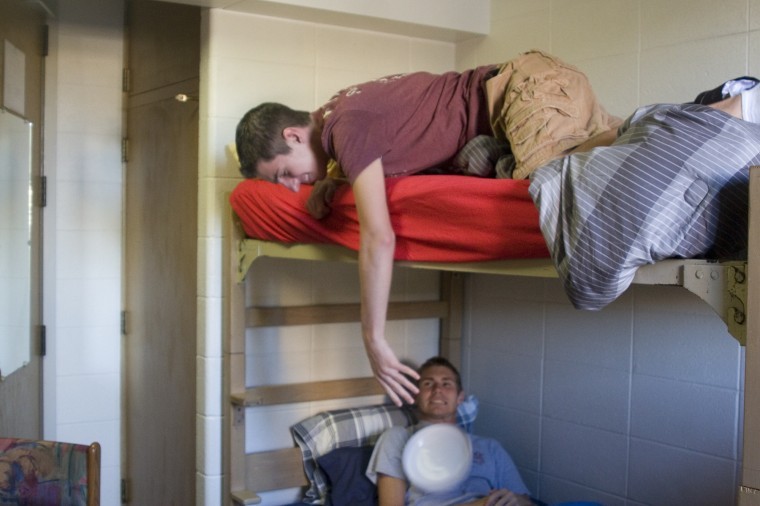How to adjust to living with a roommate
August 25, 2011
One of the most challenging aspects of college life for students can be living with a roommate.
Some students, like freshman business major Kevin Ohren, get along with their roommates without previously knowing them.
“It’s been fun, and I enjoy being with them,” Ohren said.
There are times, however, when students need help getting along with their roommates. Nicci Bishop, junior rehabilitation services major, had a difficult time living off campus with her roommates last year.
“Last year was a bad experience,” Bishop said. “With one roommate, we had problems with her boyfriend and the bills.”
Bishop met her roommates freshman year and they decided to live together, but their arrangement didn’t turn out as planned. This year, Bishop only has one roommate and says it has been a much better experience.
In order to avoid uncomfortable roommate situations, there are several tips available in the Student Legal Assistant’s Roommate Survival Guide. Copies are available at Student Legal Assistance Office, located in the Campus Life Building Room 120.
“The spirit of [the Roommate Survival Guide] is a resolution that communication among roommates is important,” said Donald Henderson, Jr., Students’ Legal Assistance director and attorney at law. “While friendship and having a good time is wonderful, it is not what [living together] is all about.”
Henderson recommends getting the basic issues of living together out of the way in order to have a good living situation. According to the Roommate Survival Guide, it is important for off-campus students to know about paying rent, utilities and Internet service beforehand.
It is also important for students on and off campus to set rules about food, household duties, guests, friends, privacy, noise, study habits, sharing, borrowing conand security.
The guide suggests making sure rules are clear so if an issue does arise, roommates can refer back to their previous decisions. Students living in residence halls are required to fill out a form covering certain issues, and if a conflict occurs, the agreement is called upon to help solve the issue. Students’ Legal Assistance also offers a roommate agreement for off-campus students on its website.
When a conflict does occur, students need to be able to reason, compromise and take other people’s needs into account, Henderson said. The guide also states the desire to win must be put aside in order to resolve the conflict.
Sometimes conflicts cannot be resolved by the roommates themselves, so the guide recommends using an outside source, such as a CA or friends.
Students can also seek help at Counseling and Student Development Center, Campus Life Building Room 200, which provides psychological counseling for students, or Health Services, which provides referral outpatient psychiatric assessment.
Additionally, Judicial Affairs and the Office of the Ombudsman provide mediation and Students’ Legal Assistance provide mediation and legal information.
For times in which residence hall roommates are unable to get along, students can request a room change.
“They can be ships passing in the night,” said Henderson. “They don’t have to like each other, but they do have to respect each other. It doesn’t need to be grim; people can agree
to disagree.”







